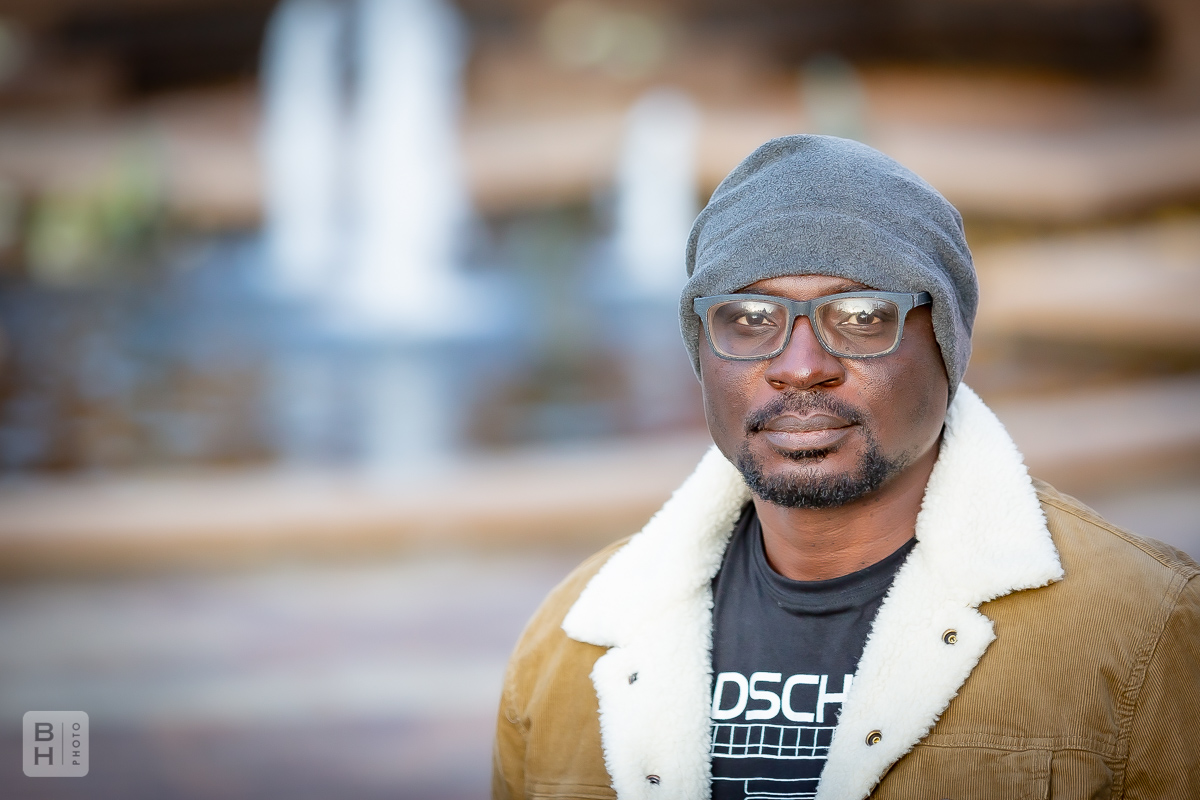It was her first holiday from Abeokuta. Idera was excited to see Lagos again, but she was not prepared for what she saw on entering the new two-bed apartment into which Aunty Rebecca and her husband had moved. She knocked at the door and waited a few minutes before she turned the knob. The door creaked open only for her to behold a man and a woman scrambling to cover their nakedness. The woman was her precious Aunty Rebecca, her breasts jingling like a bell. The man was not Uncle Solagbade, Aunty Rebecca’s husband; it was a man who Idera knew way back as a molue driver.
“How are you, darling?” Aunty Rebecca said, the molue driver hiding behind her, struggling to wear his trousers.
“Fine ma,” Idera said, looking at the floor where her bag had fallen, on sighting the naked adults.
“Go in and freshen up,” Aunty Rebecca said, with no shame or remorse in her voice.
As she made to leave, she noticed a wad of naira notes on the chair, not far from the molue driver who looked like he was dying of shame. There were at least two used condoms, suggesting to her young mind that something had already gone into something. Aunty Rebecca followed her immediately she entered the room.
“You must tell no one what you have just seen. You are a woman and I am sure you will understand with time that when a woman’s need is not met, she needs to find a way around it. My husband is never at home; he has no time for me. He thinks sending me money is all I need, but I need more. He is taking care of himself with different women in different towns along the corridors to the North. He has a woman each in Ore and Eiyenkorin, another in Mokwa, another in Jebba and another in Sabongari in Kano. But he expects me to be here waiting only for him. You are my blood and you must take sides with me. With your mother and my father dead and your father dead-alive, I am the only one you have. Do you hear me?”
ALSO READ: The Wedding in Magono by Michael Afenfia (Nigeria) & Jack Agaba (Uganda)
“Yes ma,” she said, entering a bloodless oath of secrecy with the woman who had told her to trust no one but God. Now, it made sense; it could never have occurred to her that Aunty Rebecca would cheat on her husband and right in their home, a new home for which the same man paid, to better their lot.
“He leaves me here for months and no wonder I have not been able to have a child all these years. I am a woman, I have blood flowing in my veins. I have needs that should be met. I will not resign to fate. I will take care of myself and that is all I have done. I have not killed anybody; I have only kept myself alive,” she said, reaching for the hand of her niece.
Peace eluded Idera when, the day after, Aunty Rebecca’s husband returned after one month of being away. He held his wife with a rare affection and that broke Idera’s heart. She was imprisoned by silence and guilt washed over her. She felt the man deserved to know but remembered Aunty Rebecca’s words that the man had other women in towns along his path to the north. Then she felt she was right to have cheated on him too. Do me I do you God no go vex, she thought to herself.
That night she had fever, but it was in her head. Aunty Rebecca could pass as the greatest actor in the world; she showed affection she did not believe he deserved – and that infuriated Idera, whose mother had made to believe that cheating was evil and anyone who did was the devil’s apprentice.
Before she went to bed, Uncle Solagbade summoned her to the sitting room and fear enveloped her; she wondered if the man had heard some rumours and wanted to confirm from her.
“How is school?” Uncle Solagbade asked, adjusting the wrapper tied from his waist down.
“Fine sir,” she stuttered.
“Hope all is well.”
“Yes sir.”
“I am happy you have put your mother’s death and your father’s disappointment behind you. God will be with you. Just continue to be a good girl and I will support your aunt to raise you well.”
“Thank you, sir.”
Relief washed over her when Uncle Solagbade said that was all he wanted to say. Her aunt was by his side while he talked to her. She was busy looking at her as if in search of any evidence she would go out of line.
That night, for the first time since she started staying with them, she was tempted to tiptoe to their door and listen out for signs of intimacy. She wanted to see how a woman could show affection to two different men a day apart. But she resisted the temptation and battled sleep for hours before she triumphed.
—
As usual, Uncle Solagbade left after two days and the molue driver resumed his duties every other day in his matrimonial bed. Aunty Rebecca must have given him the confidence that Idera would never tell, so he carried on as if he was in his home. He even started buying her gifts and encouraging Idera to ask him anything she needed. In Idera’s presence, he would hold her aunt in places only her husband should. Her aunt would giggle like an eighteen-year-old shocked by a sudden wetness between her thighs. Then one day, he came when Aunty Rebecca had gone to the market.
“Good afternoon sir,” Idera greeted him.
“Good afternoon Idera. Where is your aunt?”
“In the market sir. She said you should wait that she would soon return.”
He waited, but ten minutes later he asked Idera to come and sit beside him. He was wearing brown chinos trousers on an adire top. His belly was big, obviously from consuming too much alcohol at the motor park beer joint. As Idera moved closer and he opened his mouth, she nearly fainted; the smell of alcohol oozed out with a potency she had never seen before. She moved back and he asked what the problem was.
“Nothing,” she replied.
“I want to take care of you,” he said.
“Thank you sir.”
Then he made to touch her breasts; Idera moved back right on time to prevent his hand from doing his will. This man must be mad, she told herself. She remembered what Mrs. Aina taught her in school about warding off unwanted advances from the opposite sex and pronto she walked away and while she was walking away, he grabbed her from the back. She did not know where the energy came from, but she turned quickly and dealt the man a heavy blow in the face.
“Ye!” he screamed.
He was still holding his face when Aunty Rebecca came in, bearing a black polyethylene bag with vegetables and other ingredients. She dropped the nylon and asked what was going on.
“Your man is a he-goat,” Idera said, anger threatening to seethe her inside. “He was trying to touch my breasts and he grabbed my bum-bum.”
“What!” Aunty Rebecca screamed and launched at the molue driver screaming at the top of her voice, calling him a useless man.
Idera was glad she believed her. The man was still holding his face as she pushed him out of the door.
“I am sorry,” Aunty Rebecca said after shutting the door. “I don’t know he was that kind of a person. Thanks for being bold enough to deal with him. Some other girls would have fallen because of the money they could get from him and it would have been an abomination for him to be with you after being with me.”
Aunty Rebecca brooded for weeks. There were times she would just be pacing the sitting room and talking to herself. How could she feel betrayed by a man who she betrayed her husband to please? Idera was pleased by the turn of event, thinking that it would make her stick to her husband. But her wound soon healed and she got a tailor to replace the molue driver.
The tailor was a gentleman. He never tried to touch Idera. In fact, he shied away from talking to her and faced the only business she had in the apartment. He came only when he was sure Aunty Rebecca was around. But there was trouble one day when Aunty Rebecca went to the market and came back with swollen face. Idera was shocked to see her aunt in such a situation.
“Did you fall in a gutter?” Idera asked her aunt, worry written all over her. “Should I help you to put water on the fire so that I can mop your swollen face? Do you need anything?”
She asked the questions many times but her aunt, who was writhing in pain, would not answer. She instead took a pain reliever and was about to go to bed when Idera pestered her again and like it happened before, she kept straight face. Her gait was slow; her poise broken.
ALSO READ: The Creation of the Yoruba Demon, by Olatunde Jayeoba
Idera was to find out the truth days later. She ran into a girl, Nasiratu, her classmate in primary school. She told her she saw her aunt and the tailor’s wife fighting in the market. The tailor’s wife, according to Nasiratu, kept calling Aunty Rebecca thief but never bothered to say what she stole. But Idera could piece together the details, which she kept to herself. She did not even share Nasiratu’s revelation with her aunt. And the tailor never came to their flat again.
—
Not long after the incident with the tailor’s wife, Aunty Rebecca fell ill. But instead of going to the hospital, she took herbs. She claimed it would heal her in no time. As days ran into weeks and weeks into months, the healing powers she ascribed to the herbs never manifested. Uncle Solagbade came home one weekend and saw that she was still down and insisted on taking her to the hospital.
“There is no need,” she said, re-tying her Ankara wrapper to her chest.
“You are not serious,” Uncle Solagbade said. “If I need to drag you, I will not hesitate to do so.”
Idera was still on holiday so she followed them to the hospital in an unmarked taxi. There was a large crowd at the General Hospital when they got there. They got a tally number, which showed there were 101 patients before Aunty Rebecca. After four hours of waiting, it was her turn. Idera stayed outside while husband and wife went in to see the doctor. They took the two seats in front of the doctor, who was wearing a white overall over his grey suit. Neither of them noticed the fact that he was handsome or bespectacled. They were tired and wanted to get it done with.
After the preliminary questions, Dr. Olugbile asked Aunty Rebecca to lie flat on a small bed. It was then he noticed the body rash. She had complained about sore throat, severe headaches, fever, fatigue, nausea, vomiting, muscle pain and night sweat. He asked her to stand up and they both returned to the seats.
“We will have to run some tests and I am afraid she will have to stay here with us while awaiting the results of the medical examination,” Dr. Olugbile said.
Blood samples were taken and sent to the laboratory after Solagbade made some deposits. He later told Idera to go home and bring some items her aunt could need. The results of some of the tests came out within one week; some even came out in twenty-four hours. They were all negative. The doctor had thought the cough could be as a result of tuberculosis, but she was free of it. The nausea and vomiting had nothing to do with pregnancy. His fears mounted, but he bottled them up until the result of the outstanding test came out. It was to Solagbade he broke the news that his wife was HIV positive.
ALSO READ: Citizen Leah Sharibu – The Girl They Forgot
“Ye!” Solagbade screamed.
“And we will have to run the test on you too to be sure you are not infected,” Dr. Olugbile said.
Solagbade’s mind travelled far in that instant: It went to Ore, where Idia warmed his bed anytime he stopped over in the gateway town; it travelled to Benin, where Osas was always willing to spread her legs wide for him once he was ready to pay; it stopped at Mokwa, where Hassana, who had a secret child for him, treated him like a king anytime he stopped over; and to Sabongari where Alimat was the queen of his heart.
“Let me take the blood sample now,” Dr. Olugbile said. “We have to wait for the result of your test before we tell your wife, but we will commence treatment and I can assure you she will be fine once she takes her anti-retroviral drugs as prescribed, eat healthily and exercise well. She is not going to die and you guys can still be husband and wife but you have to use condom each time you make love.”
Solagbade was not listening. He only knew he was talking. As his blood sample was being taken, his mind wandered again. This time, it was to a day when he found himself in his trailer parked close to a tree in Tundunwada; Hadiza was with him and under the shadow of the night, he removed her underwear and sat her on his third leg.
“That will be all for now,” the doctor said and brought him back from his reverie.
The first time Solagabde heard of the virus was when Health Minister Olikoye Ransome-Kuti announced in 1986 that a 13-year old girl had tested positive for HIV. That was the first time many Nigerians heard that one of them had succumbed to the virus. Rebecca’s was the second Solagbade would hear and the first he knew personally and he feared that his own might be the third.
Each day, awaiting the result of the test, he had nightmare upon nightmare; death paid him a visit many a time; his headaches were uncountable and his appetite took a dive downward. His life seemed to be draining out. Dr. Olugbile’s words that HIV was no death sentence sounded like sophistry in his ears.
Rebecca was seemingly getting better with the anti-retroviral drugs being administered on her. Nobody explained the change in drugs to her; neither did she get any explanation to the fruits she was asked to take. But she was worried that the nurses were extra careful with her, especially when handling anything that involved her body fluid. She was consoled though that she was getting better. Soon the result came and Solagbade was negative and it was time the news was broken to Rebecca. Her world came down. And her recovery suffered. She stopped eating well, pushed away the fruits and told the doctor that he was lying by telling her she could still live a normal life. Then she cursed the molue driver, who she believed must have infected her. In her thinking, the tailor could not have had HIV. Only the molue driver, who insisted on not using condom after some time, could have given her the virus, she concluded.
With some persuasion, she returned to taking her drugs. Even though in his mind Solagbade wanted to ask her where she got it, he knew he lacked such high moral ground.
“It will be well, my darling wife,” he said to her the day they returned home. It was that day that Rebecca herself broke the news to Idera, who quickly got over her shock to tell her aunt what her Health Science teacher had taught her about the virus.
“You will be okay once you take your medicine very well, eat fruits and exercise your body well,” Idera said to her aunt who thought she had spoken like Dr. Olugbile.
Idera was not done with her aunt.
“Most people do not know that there are ‘smaller’ diseases that kill more than HIV. It is the fear of HIV that actually kills, not the virus. If the rich people in the world could use their wealth to make available drugs for the poor, instead of spending $300 million dollar on palaces, we will have a better world. We don’t need $350 million cathedrals in a world plagued by HIV.”
She did not thank her niece, but her eyes said much more. But as the days went by, she worried about what people would say, how long Solagbade would stay with her before returning to the road and she would be lonely, especially when Idera returned to school. Then one day she asked Idera to go and buy a potent insecticide, which she claimed she needed to drive away mosquitoes and other flying insects in her room. That night, Solagbade discovered her dead in the room. The bottle of the insecticide known as otapiapia was empty.
Photo Credit: @tesswilcox
About the Writer
OLUKOREDE S. YISHAU is the author of IN THE NAME OF OUR FATHER. He was the NMMA Columnist of the Year (2015), NMMA Entertainment Reporter of the Year (2015), NMMA Capital Market Reporter of the Year (2013), NMMA Aviation Industry Reporter of the Year (2003), Finalist, NMMA Columnist of the Year (2016), Runner-up, Union Bank’s Banking and Finance Reporter of the Year (2003), Runner-up, Olu Aboderin Entertainment Reporter of the Year (2001),Runner-up, Print Journalist of the Year (2005), and Runner-up, Political Reporter of the Year (2006).
Written by : Michael Afenfia
Subscribe To My Newsletter
BE NOTIFIED ABOUT BOOK SIGNING TOUR DATES
Subscribe to my newsletter



